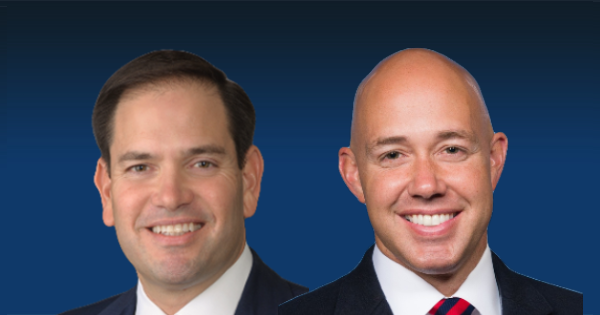Last week, U.S. Sen. Marco Rubio, R-Fla., and U.S. Rep. Brian Mast, R-Fla., paired up on the “Land and Water Conservation Fund Amendments Act.”
The bill “seeks to amend the Land and Water Conservation Fund (LWCF) to increase flexibility and allow states to utilize existing funds to support water quality projects that states are required to propose under Section 303(d) of the Clean Water Act for watersheds deemed impaired by nutrient loading.”
Rubio’s office offered some of the reasons he and Mast teamed up on the proposal.
“Under current law, the LWCF is used exclusively for land acquisition and efforts directly relating to recreation, such as educational signage, but cannot be used to improve the lands and water they are intended to conserve. Expanding eligibility to include water quality and ecosystem restoration projects would allow states, like Florida, to use existing federal money for projects to restore aquatic lands and waters in a manner that improves water quality and reduces the risk of harmful algal blooms to promote more enjoyable outdoor recreation experiences. This bill would make approximately $100 million in existing federal funding available for water quality projects in the state of Florida over the next decade, without the need for authorizing or appropriating new funds. As a result of the requirement that LWCF monies are matched by the non-federal recipient, this bill would allow approximately $200 million in total to be made available for water quality projects over the next decade,” Rubio’s office noted.
“Protecting and restoring Florida’s water quality is critically important for our state,” Rubio said. “This bill would make meaningful reforms to allow existing LWCF funds to be used for ecosystem restoration and water quality projects in Florida. This important change will give our state additional resources to improve our state’s ecosystems, reduce nutrient loads in our waterways, and reduce the risk of harmful algal blooms.”
“In Florida, water quality and recreation go hand-in-hand. Toxic algae often keeps people from enjoying our waters and beaches, so expanding eligibility to water quality projects is completely in line with the LWCF’s mission,” Mast said. “Florida taxpayers contribute to this fund, we should be able to use it to address the most pressing issues in our communities.”
Rubio’s bill was sent to the U.S. Senate Energy and Natural Resources Committee. So far, there are no co-sponsors in the Senate.
Mast reeled in the support of U.S. Reps. Carlos Gimenez, R-Fla., and Maria Elvira Salazar, R-Fla. Last week, Mast’s bill was sent to the U.S. House Natural Resources Committee.




















